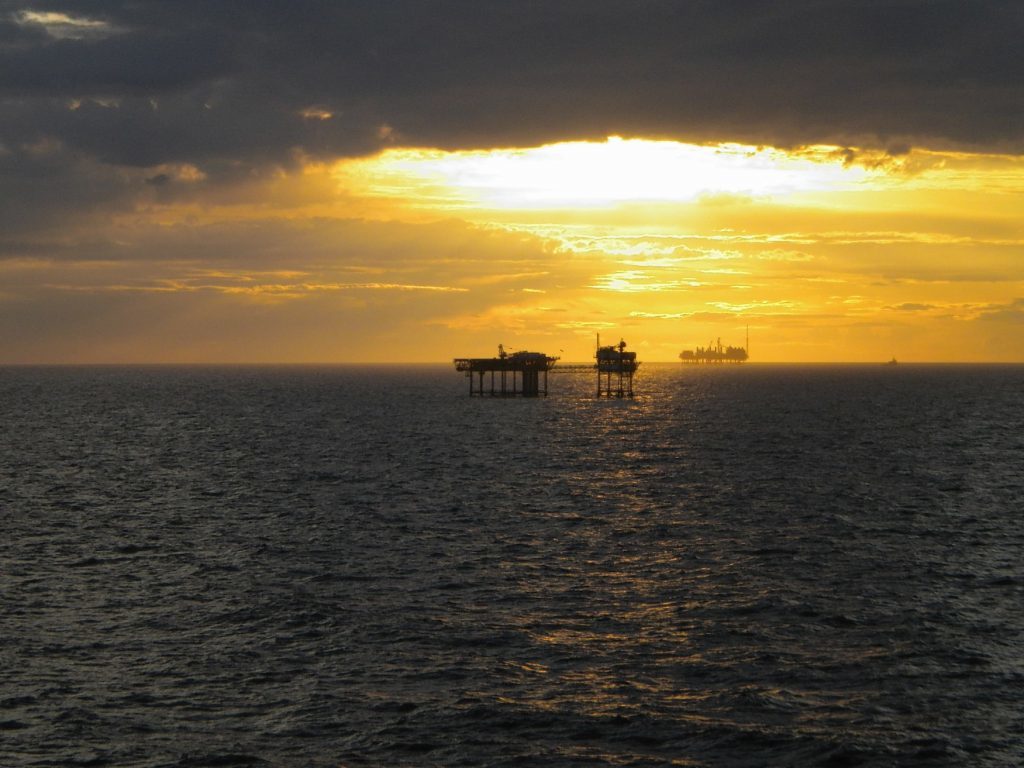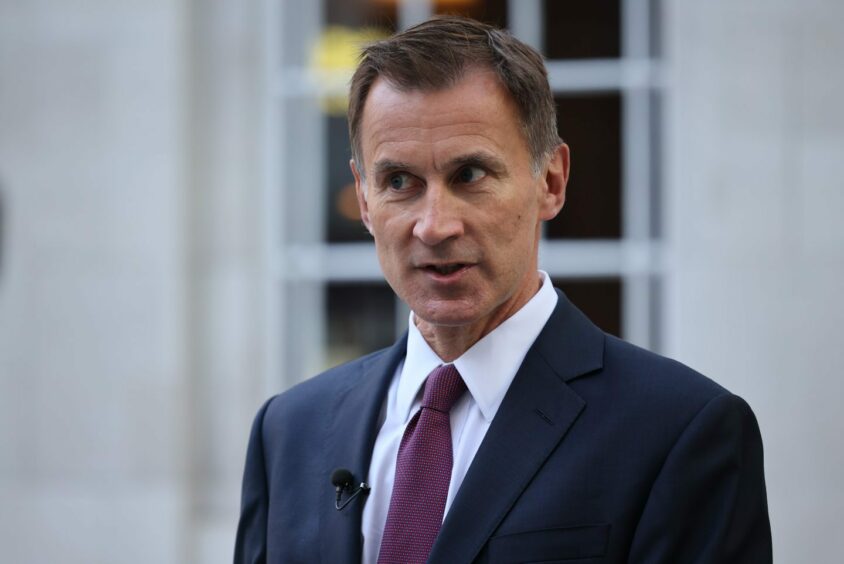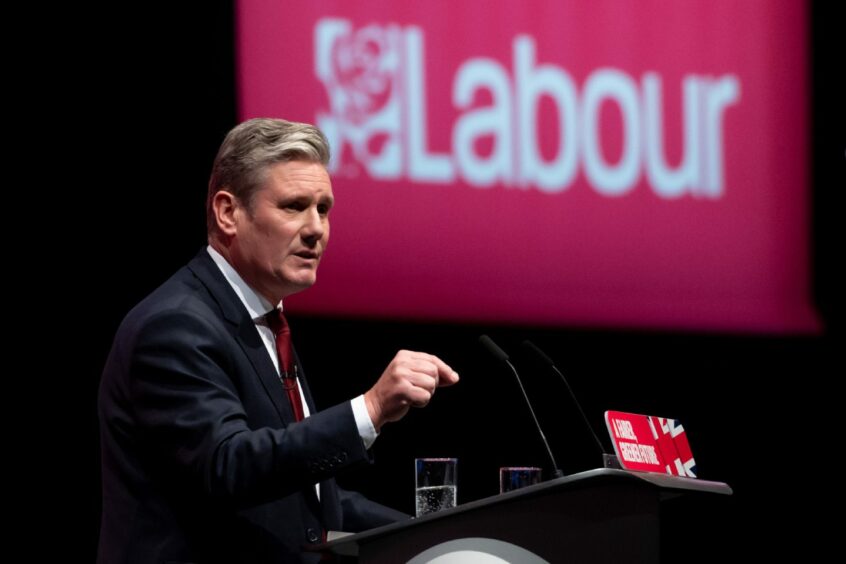
There was once a time when grandiose economic statements were something of a collector’s item.
Now, with the UK Government preparing for its autumn budget – another addition to the mounting list of major fiscal announcements in 2022 – they are less of a rarirty.
People up and down the country are holding their breath, waiting to see what measures will be enacted to plug Westminster’s £50 billion black hole – and Energy Voice understands the windfall tax is due to be expanded to 35%.
At the same time, the oil and gas industry’s profit train rolls on, with many companies reporting bumper takings for a third consecutive quarter.
And while that’s good news for their balance sheets, it puts the sector right in Jeremy Hunt’s line of fire when the Chancellor takes to the Commons on Thursday.
Windfall Tax II, return of the Windfall Tax
At this stage, an expansion of the current windfall tax on the profits of oil and gas producers seems inevitable.
The measure was first announced by then-Chancellor, now-Prime Minister Rishi Sunak in May, hours after a report into the scale of partying at Number 10 during lockdown was published.
It upped the headline rate of tax on North Sea companies from 40% to 65%, with cash raised ring-fenced to help struggling households.
Formally known as the energy profits levy (EPL), the move was designed to support consumers as the cost-of-living spiralled.
Since then, things haven’t improved for households and businesses, and many are still struggling as the beast of inflation stalks the UK.
It is widely expected that Mr Hunt will up the EPL by an additional 10%, and extend the sunset clause until 2028 – it is currently 2025 or when the oil price drops below $70 a barrel.
When questioned on Sky News, business secretary Grant Shapps intimated a furthering of the current arrangement could be part of the autumn statement.
He said: “It is the case that because fuel prices have been so high, there have been unexpected profits, of course.”
Fiscal instability destructive
The main criticism levelled against the government’s approach is that it fuels doubt, at a time when energy markets demand companies go for gold.
Head of oil and gas research at Investec, Nathan Piper says “significant uncertainty” around the EPL is muting interest in the UK North Sea.
He added: “There are indications ahead of the Autumn Statement 17th November that the windfall tax could be increased to 30% and extended to 2028 (coincidentally the end of the OBR forecast period).
“This effectively increases the tax rate from 40-70% from 2026 with material valuation implications on UK North Sea companies/assets. Medium term this could reduce UK North Sea investment, accelerating production decline and increase reliance on oil and gas imports (associated with up to 8x higher emissions than domestically produced gas).”
Having vehemently opposed the rollout of the initial windfall tax, trade body Offshore Energies UK has called on government not to upset the apple cart again.
OEUK has warned that any further changes to the fiscal regime would drive investment out of the UK, and could even lead some companies to up sticks and leave altogether.
In a recent letter to Mr Hunt, trade body chief executive Deirdre Michie said: “There is clear evidence that fiscal stability drives investment into the North Sea and fiscal uncertainty drives investment away from it.”
Companies getting nervy
It is a sentiment that has been echoed by North Sea oil firms, which sent a letter to the Chancellor calling the UK one of the most “fiscally unstable” places to do business.
Meanwhile IOG, which operates gas fields off the UK coast, has asked Mr Hunt to provide a “small fields allowance” in the windfall tax to mitigate decline.
Ithaca Energy last week described tax changes as the “biggest question mark” hanging over the development of the huge Cambo and Rosebank oilfields, West of Shetland.

Carole Nakhole, founder and chief executive of advisory firm Crystol Energy, said: “It is hard to argue against a windfall tax on energy companies when they are reporting record profits and especially when consumers are facing dire energy bills.
“However, there is no universally accepted definition of what qualifies as excess profit; the EU recently defined it as profit in excess of 20% over last 4 years average.
“Also, any new tax to be imposed should take into consideration the system already in place. To start with, a well designed fiscal regime should automatically adapt to various circumstances and should save governments the administrative burden of chasing the volatile energy prices.”
Investment relief
Another facet of the policy that could be changed on Thursday – though there’s no suggestion it will be – is the investment relief that oil and gas producers currently benefit from.
In order to soften the blow of the original windfall tax, Mr Sunak included a mechanism designed to incentive companies to splash the cash.
An increase to the investment allowance allows North Sea producers to claim a 91p tax saving for every £1 they invest in further oil and gas extraction.
It meant that Shell paid no windfall last quarter, despite returning global quarterly pre-tax profits of $11.4 billion.
The mechanism has drawn criticism from Labour leader Keir Starmer, who accused Mr Starmer of not standing up to Big Oil.
He said: “Take Shell, they made record profits this year of £26bn – how much have they paid under his so-called windfall tax?
“The answer is nothing. Shell haven’t paid a penny in windfall tax. Why? Because for every pound they spend digging up fossil fuels he hands them a 90p tax break and it’s costing the taxpayer billions.
“So will he find a backbone and end his absurd oil and gas giveaway?”
Recommended for you


 © George Cracknell Wright/LNP/Shut
© George Cracknell Wright/LNP/Shut © Bloomberg
© Bloomberg © Supplied by Investec
© Supplied by Investec © PRESS AND JOURNAL
© PRESS AND JOURNAL © Mandatory Credit:James McCauley/Shutterstock
© Mandatory Credit:James McCauley/Shutterstock